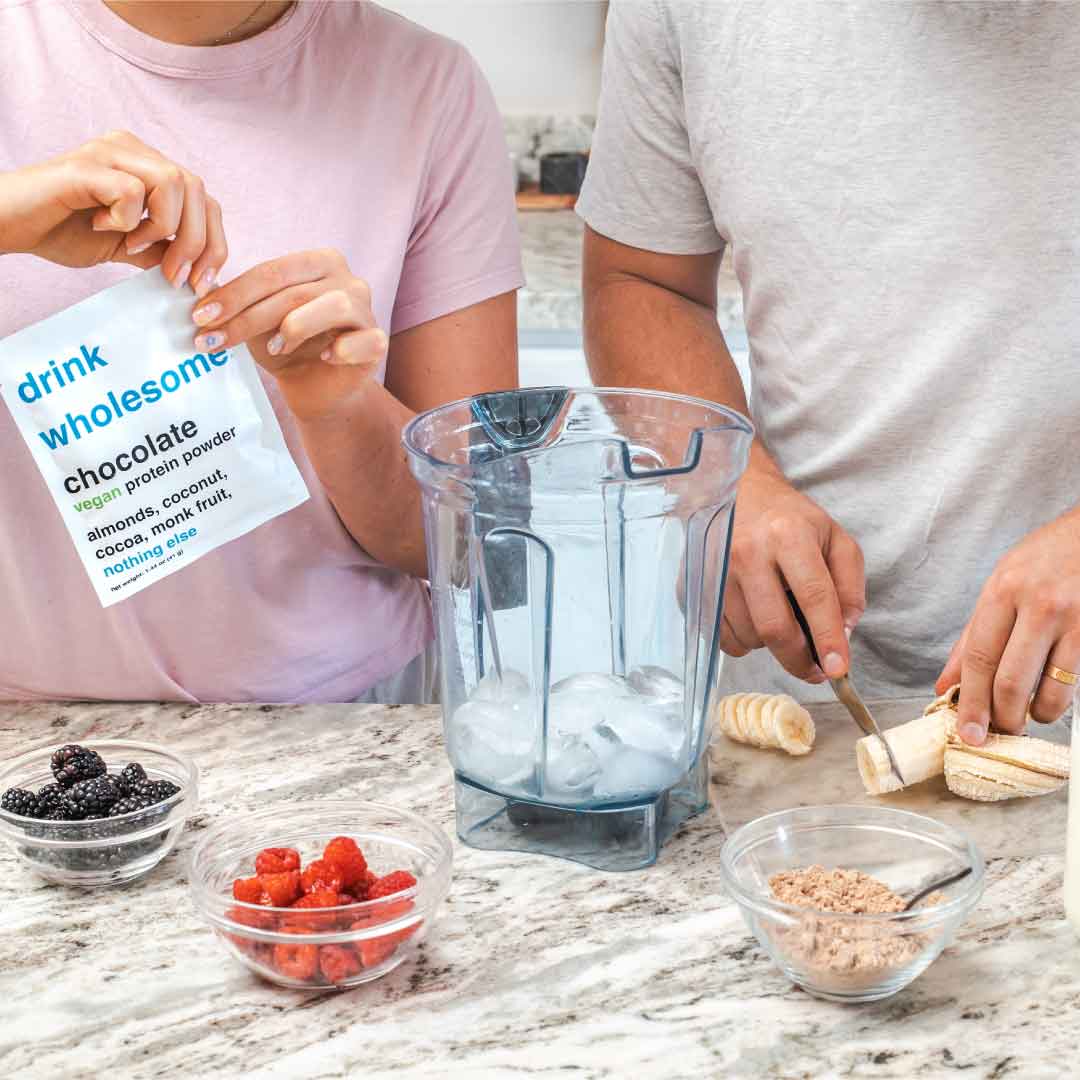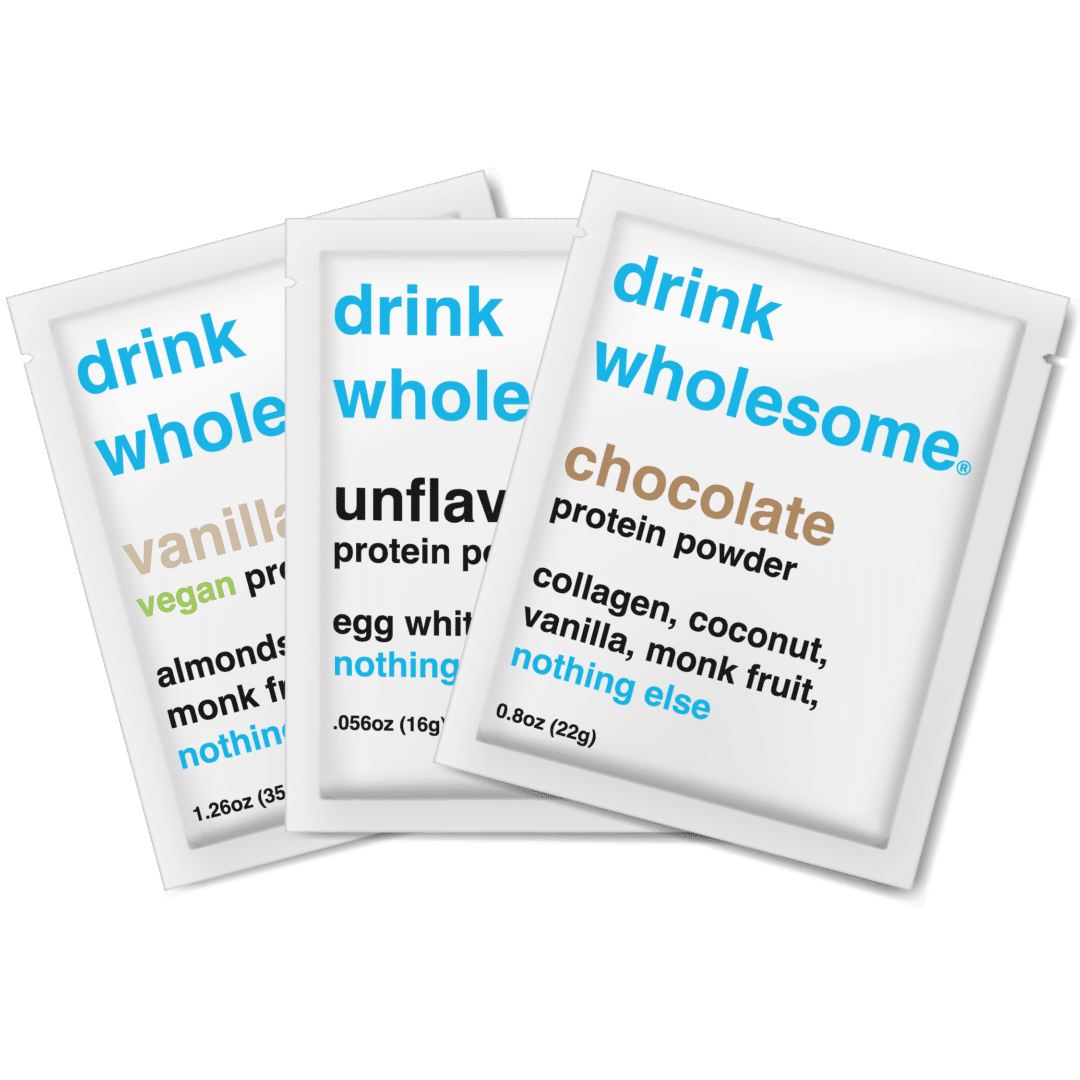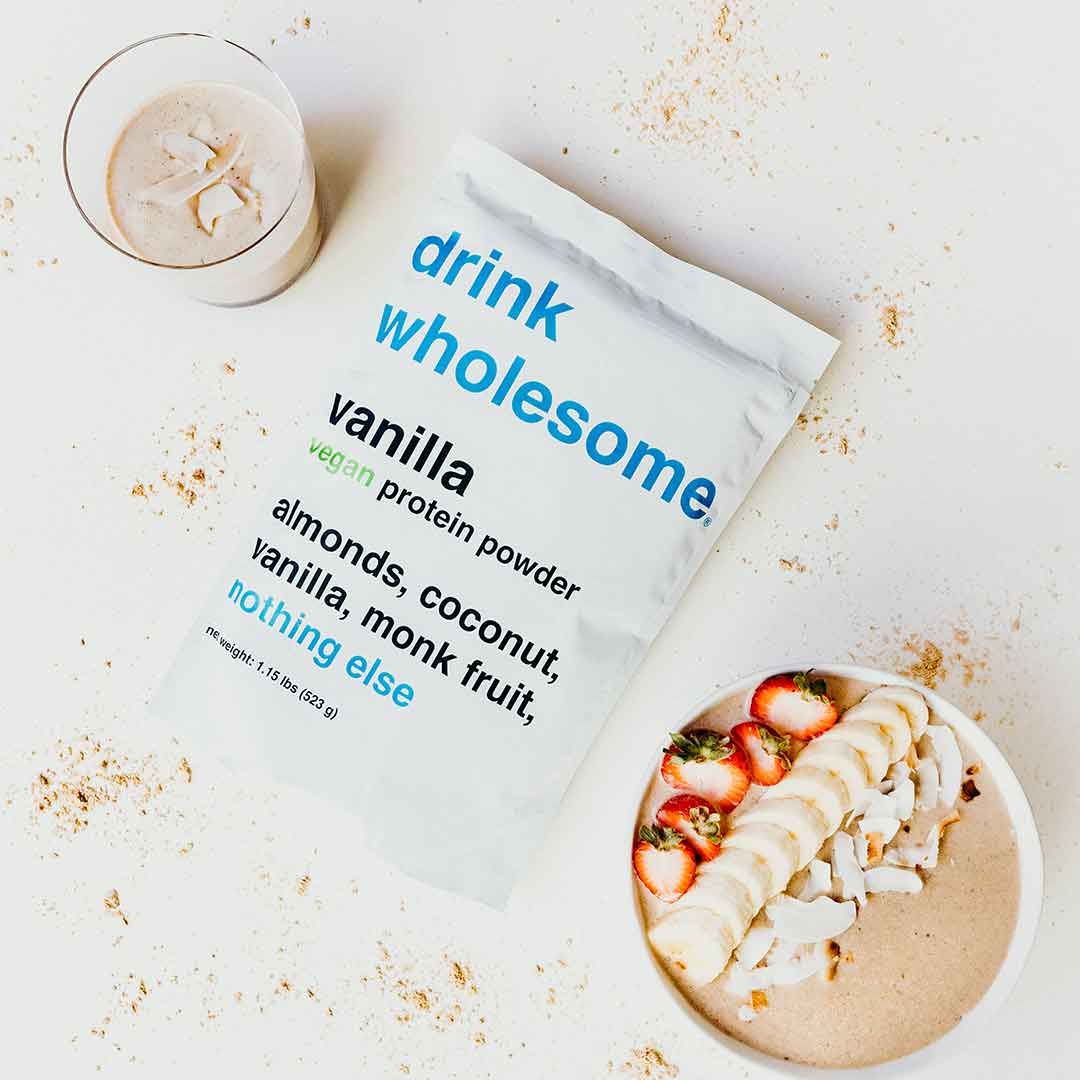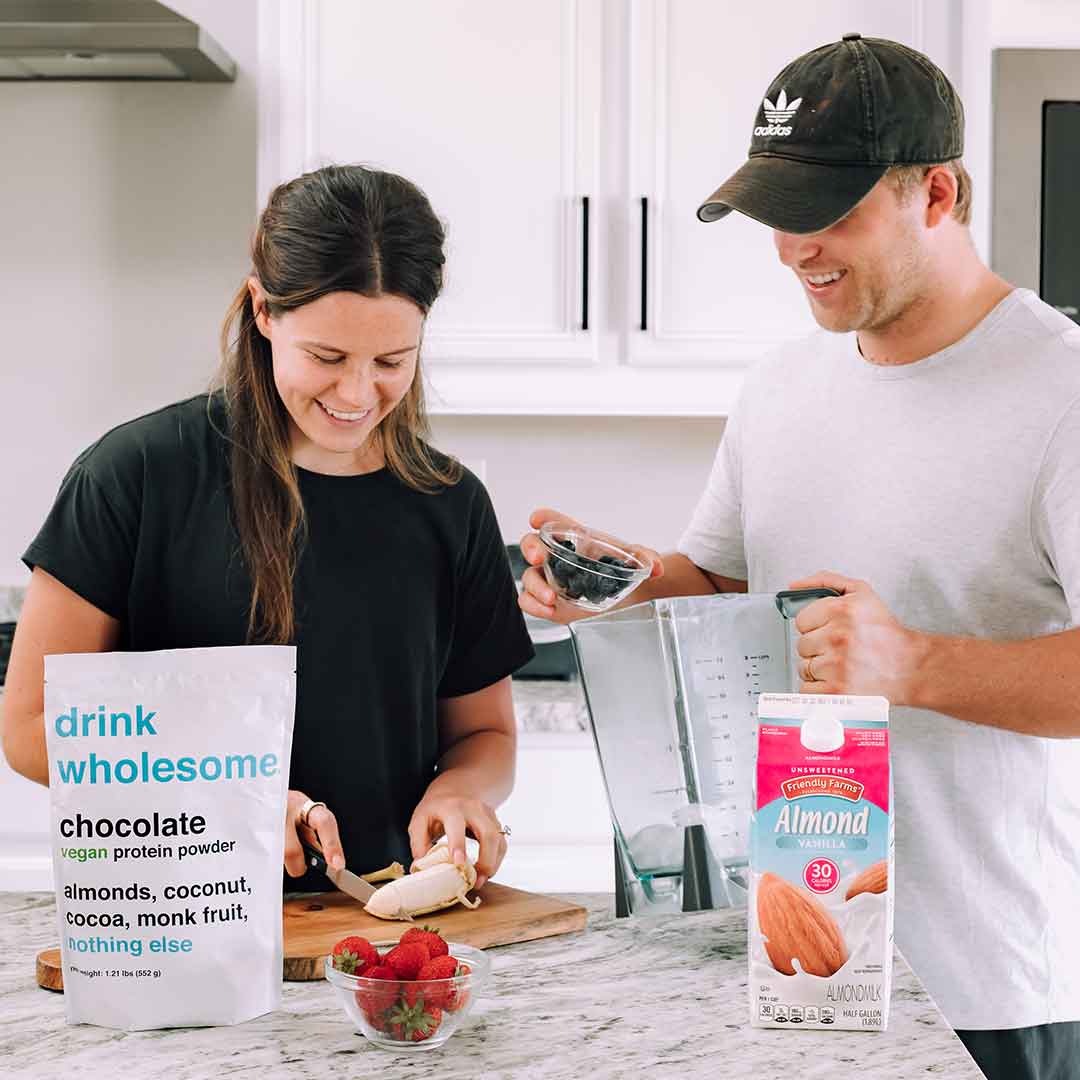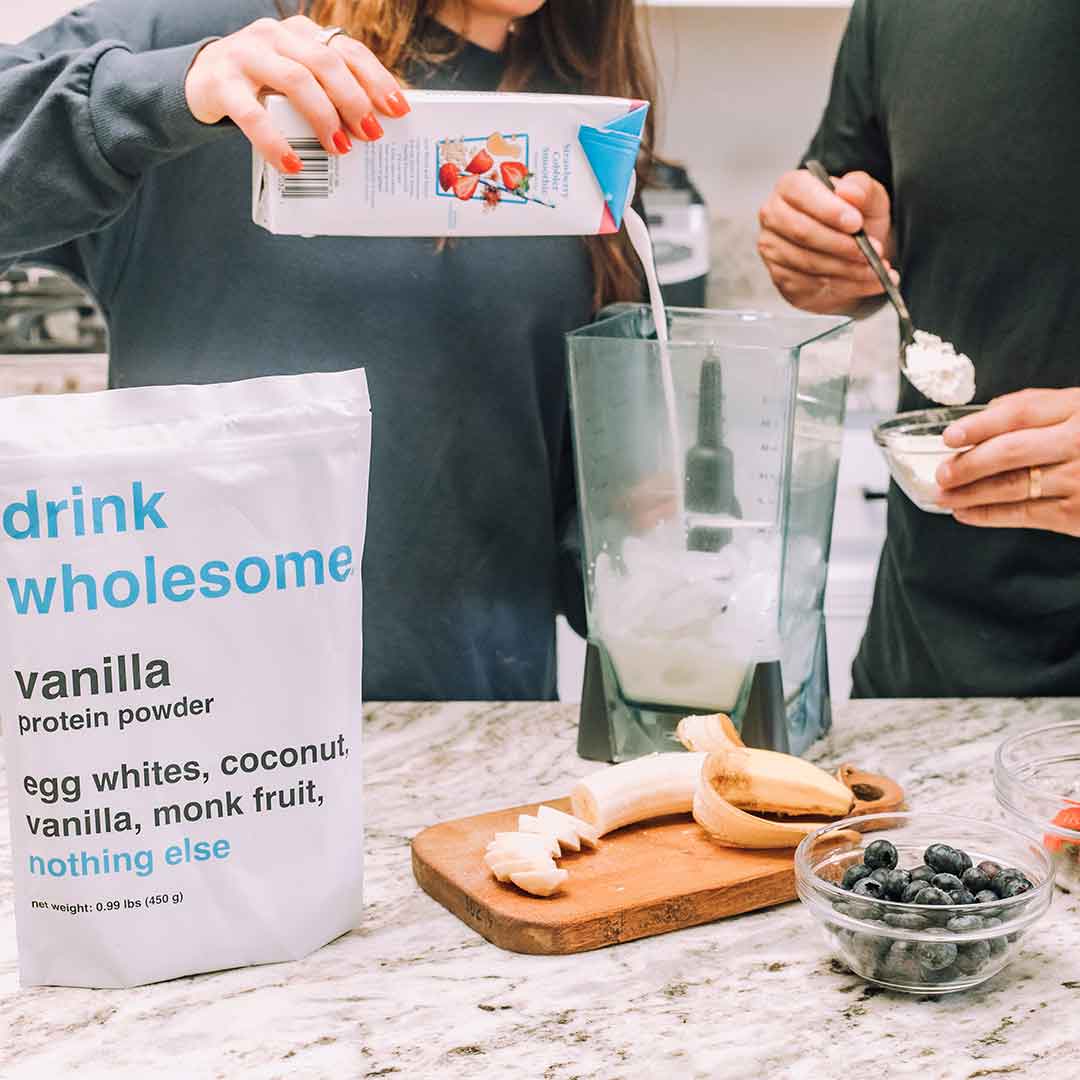Why does protein powder make you poop?
I myself used to wonder, “Why does protein powder make me poop?” It never made any sense to me, until I started learning more about protein powder ingredients. It turns out the average protein powder makes me poop because it is full of added junk.
Here are the top 4 reasons why protein powders make you poop. Keep in mind that what triggers side effects for one person, may not trigger them for the next. That said, it is safe to say that if your protein powder makes you go to the bathroom, one (or more) of these ingredients is to blame.
1) Food additives can make you poop.
Food additives like emulsifiers, thickeners, and flavors tend to draw water into the colon, increasing the liquid content of the stool. This happens because they are hard to digest and create a high osmotic load. When the osmotic load is high, there is more osmotic pressure. Osmotic pressure is the pressure exerted by a solvent (usually water) as it moves across a semipermeable membrane (in this case the colon) in order to balance the concentration of solutes on each side of the membrane.
Here is a list of the most common food additives in protein powder:
acacia fiber, acacia gum, artificial flavors, ascorbic acid, aspartame, calcium carbonate, carrageenan, cellulose gum, dextrin, dicalcium phosphate, dipotassium phosphate, gellan gum, guar gum, gum arabic, inulin, locust bean gum, maltodextrin, mono- and diglycerides, ‘natural’ flavors, rice bran extract, rice dextrin, rice hulls, rosemary extract, silica, silicon dioxide, sodium alginate, sodium bicarbonate, soluble corn fiber, soy lecithin, sunflower lecithin, tocopherols, tricalcium phosphate, xanthan gum, zinc oxide
2) Dairy-based proteins can make you poop.
Dairy-based proteins like whey and casein can make you poop because they contain lactose, a sugar most adults cannot fully digest.
3) Sugar alcohols can make you poop.
Artificial sweeteners and sugar alcohols resist digestion and can have a laxative effect. Common artificial sweeteners are sucralose and acesulfame potassium. Common sugar alcohols are erythritol, sorbitol, and xylitol.
4) Insoluble fiber can make you poop.
Insoluble fiber adds bulk to the stool. If you eat a lot of it at once, it will make you poop. Most vegan protein powders contain some insoluble fiber. Some protein powders, especially those intended to help with weight loss, contain added insoluble fiber. In many cases, this added fiber is in the form of xanthan or guar gum, which are also used as laxatives.
5) Preexisting gut issues can make you poop.
It is important to understand how the body breaks down and absorbs protein. When you eat dietary protein, it enters the stomach where stomach acid and enzymes start to break it down into smaller components. From there, the partially digested proteins move into the small intestine, where enzymes called proteases break them down into amino acids. Amino acids are then absorbed through the intestinal lining and enter the bloodstream, which transports them throughout the body.
If any part of this complex process is not working properly due to preexisting gut issues, the protein you eat will not be fully broken down and absorbed. Not only will this deprive you of the amino acids you need to stay strong and healthy, but it will also cause painful side effects like diarrhea.



